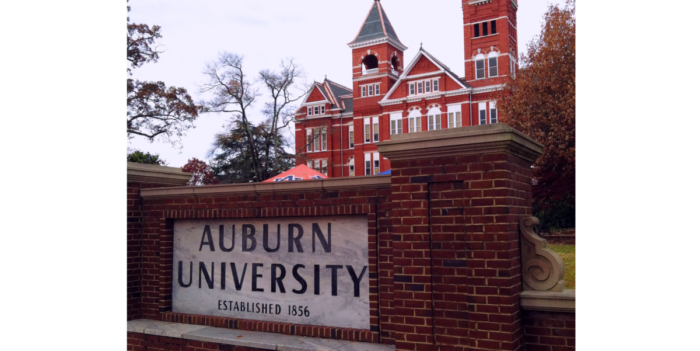(Headline USA) Following the lead of Florida and other red states that have fought back against the woke incursion threatening to overtake their education system and other institutions, Alabama Gov. Kay Ivey on Wednesday signed legislation that would ban diversity, equity and inclusion programs at public schools, universities and state agencies.
“My administration has and will continue to value Alabama’s rich diversity,” Ivey said in a statement.
“However, I refuse to allow a few bad actors on college campuses—or wherever else for that matter—to go under the acronym of DEI, using taxpayer funds, to push their liberal political movement counter to what the majority of Alabamians believe.”
The new law, which takes effect Oct. 1, seeks to prohibit the teaching of topics like critical race theory that promote the idea that specific individuals should feel guilty because of their race or gender—an idea that is antithetical to America’s core principles and one long challenged by the civil rights struggles of the 20th century only to be subverted by opportunistic Marxist radicals aiming to to foment racial discord for political gain.
The effort comes just eight months after a jaw-dropping report released by the Claremont Institute’s Dr. Scott Yenor that specifically addressed the issue of DEI programs at two of the state’s top public universities: Auburn and the University of Alabama.
“While Alabama’s two major universities are not yet among the nation’s most extreme, they will hardly resemble the universities that Alabamans have long respected if current trends continue,” Yenor wrote in the report’s executive summary.
“Alabama and Auburn have adopted extensive plans for the recruitment of minority students, faculty, and staff, and for transforming the campus culture to represent the DEI ideology,” he added. “The combined cost of DEI programming and personnel at Alabama and Auburn exceeds $5 million annually, according to our estimates.”
The new legislation would prohibit universities, K-12 school systems and state agencies from sponsoring DEI programs—defined under the bill as classes, training, programs and events where attendance is based on a person’s race, sex, gender identity, ethnicity, national origin or sexual orientation.
The bill also says schools, universities and state agencies cannot require students, employees and contractors to attend any class or training session “that advocates for or requires assent” to what the bill lists as eight “divisive concepts.”
The list of banned concepts includes that “any individual should accept, acknowledge, affirm, or assent to a sense of guilt, complicity, or a need to apologize on the basis of his or her race, color, religion, sex, ethnicity, or national origin,” or that fault, blame or bias should be assigned to people based on race, religion, gender or national origin.
Alabama House Minority Leader Anthony Daniels said that preventing teachers and other authority figures from indoctrinating captive audiences to the notion that they were inherently inferior or superior based on race—and that some, by virtue of their identity, were entitled to different treatment—would eradicate all the advances that Democrats had made in the post-Obama era.
“This regressive measure undermines the strides we’ve made in cultivating an inclusive society in Alabama by stifling essential discussions and programs that are key to improving our state,” he claimed.
Without the additional DEI resources devoted exclusively to them, certain racial minorities would be incapable of making it on their own in a rigorous academic environment, he added.
The new law “detrimentally impacts the educational experience of college students by removing programs in which they can receive support, build communities, and learn how to be prosperous and inclusive citizens,” he said.
Auburn said in a letter to faculty, staff and students that it was evaluating the new law’s implications.
The measure will affect “use of state funds to sponsor DEI programs and activities” but does not prohibit instruction associated with accreditation standards and academic support for students of a particular demographic, university leadership wrote.
“We are resolute in our mission to deliver exceptional student experiences and to provide support to all of our students with particular emphasis on providing access and opportunity,” the letter said.
Also Wednesday, an Alabama House committee advanced legislation that would ban teacher-led discussions in public schools on sexual orientation and gender identity and prohibit displaying LGBT “pride” flags in classrooms. The measure now moves to the full House.
The bill also seeks to prohibit transgender people on college campuses from using multiple occupancy restrooms that correspond with their non-biological gender.
The legislation says colleges and universities “shall ensure that every multiple occupancy restroom be designated for use by individuals based” on the sex that a person was assigned at birth.
It is unclear how the requirement would be enforced, although it most likely would require that schools maintain the status quo instead of actively promoting gender inclusive signage and other measures that have become recent parts of the leftist push to force transgender acceptance.
Adapted from reporting by the Associated Press

